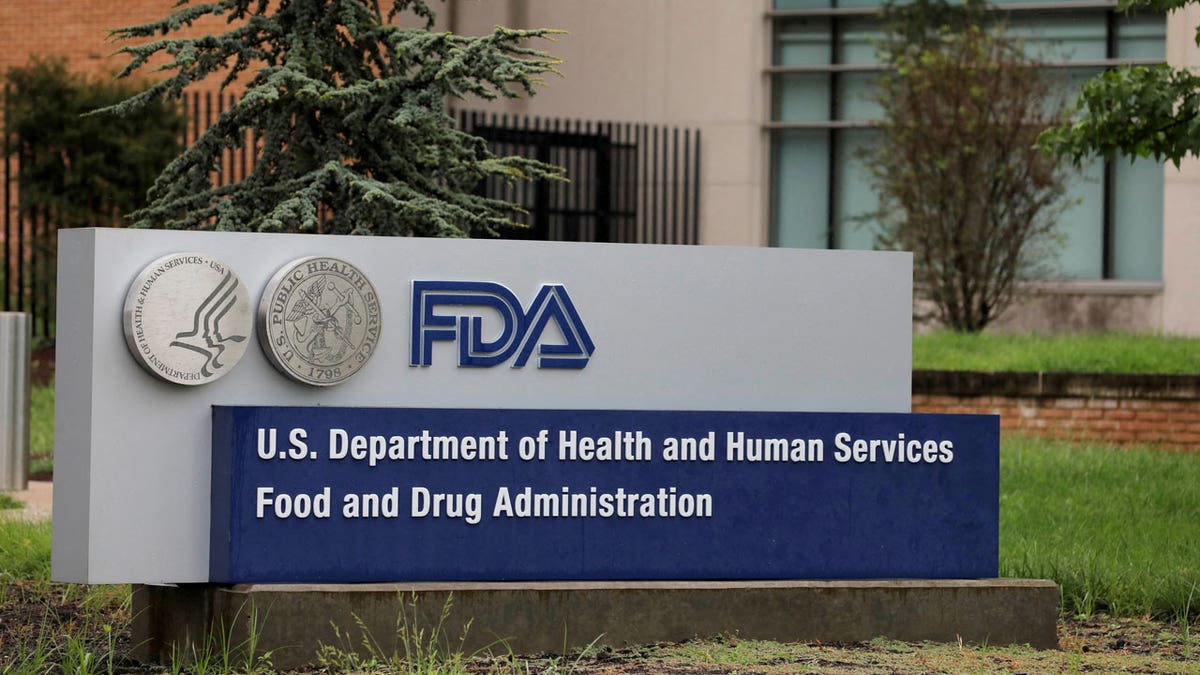Fox News Flash top headlines for June 2
Fox News Flash top headlines are here. Check out what's clicking on Foxnews.com.
My wife, Dora, is exceptional in many ways. She is a Navy veteran who excelled as an analyst hunting submarines. She served in New Mexico’s National Guard. And at age 55, she was diagnosed with Alzheimer’s disease.
Early onset Alzheimer’s is rare. Only about 5% of cases start in middle-age. But she was one of them, and it destroyed our world. I incrementally lost the love of my life, the mother of my children, my best friend. I lost the center of my life’s story, a story that I can’t ever tell again.
Millions of Americans are going through this ordeal in some form right now. The difference today is there are treatments that could slow the progression of disease by as much as 18 months, but Medicare is withholding coverage.
I don’t know if these drugs would have helped Dora slow the progression if they were available back then. But I know that because we weren’t taken seriously and didn’t get an early diagnosis, Dora never got that chance.

Only about 5% of early onset Alzheimer's cases start in middle-age, but the result is still devastating. (iStock)
Every day, hundreds or even thousands of people slip past a stage where such treatments might help. This to me is a tragedy, for Dora, and for many other sufferers and their families.
The grim reality came upon us eight years ago, like a thief in the night. Driving home from work, she stopped at an intersection she’d crossed hundreds of times. The next thing she knew, she was lying on her back in the grass, with the car idling on the sidewalk and the door open. Although she somehow found her way home, she had no idea how this had happened.
At the time, she minimized it, but months later she told me the whole story, how she had lost track of where she was and what she was doing. But it wasn’t the first time it happened.
She’d been going through this for months. She was too scared to tell me. She didn’t want to worry me. And she thought that if she gave voice to it, her loss of normal life would become real.
It was indeed starkly real.
Dora is one of millions afflicted with this cruel disease. Today, she lives in a memory care facility, where I visit her three to four times a week. She is a shadow of her former self.
I still lay next to her in bed and tell her I love her. We drive for miles in the countryside listening to music she loves. She tells me she loves me, often repeatedly, and just holds my hand as we drive along. Sometimes she cries when I leave.
The woman the nurses now care for is helpless, but she didn’t reach this state easily. The progressive loss of brain function warped her otherwise sweet disposition, because she was scared, delusional, and suffered hallucinations.
She’d been going through this for months. She was too scared to tell me. She didn’t want to worry me. And she thought that if she gave voice to it, her loss of normal life would become real. It was indeed starkly real.
Her mind grew addled, her mood dark and confused. She would rage with anger. She’d hurl horrific accusations at me, offenses she imagined, seeking a scapegoat to blame for her condition.
When peace came at night with sleep, it was even more jarring: she would wake in moments of clarity, briefly emerging from her descent to madness. Piteous crying, begging for help — but no help came, though all this time I was desperately trying to secure that help.
For now, a sliver of her remains. I try to revel in the remnants of her former self, knowing one day even these will slip away forever. I’ll be left utterly alone to battle the complex emotions of loss.
Will I feel secure in the hope that she finally has peace? Will my grief be mixed with relief that the long goodbye is over, and my life can go on? I fear I’ll instead feel regret that I didn’t do enough for her, though objectively I have tried to move heaven and earth on her behalf.
A lot has changed since 2015. Back then, we struggled to get a diagnosis. We even faced harassment from the clinical community, as we ran up enormous hospital bills going from one specialist to the next looking for answers.
Even when we got those answers, there were meager options for treatment. All we could do was to cling to the remaining months of life that Dora would be able to meaningfully enjoy.
Today, advances in diagnostics and greater clinical consciousness mean fewer families will face the rejection we encountered when we sought Dora’s diagnosis. PET scans are helping doctors confirm a diagnosis of early onset Alzheimer’s, and new treatments show hope of slowing disease.
CLICK HERE TO GET THE OPINION NEWSLETTER
Some say these new treatments, despite being FDA-approved, are somehow unproven or too expensive, especially for programs like Medicare or disability. But our social safety net is mandatory. We are all taxed to pay for it, and it is based on the promise that if you need help, it will be there.

Even if The FDA approves new Alzheimer’s drugs, Medicare will only cover the cost in a limited number of cases. (Reuters/Andrew Kelly/File Photo)
Expensive or not, the social compact that drives these programs isn’t conditioned on cost. Indeed, the whole concept of mandatory contributions to government health programs is that when something catastrophic happens that would be way too much for an individual to bear, these programs will help you.
Should people like my wife be allowed to slip into a state where their care is more expensive than the treatment that might have kept them at home, more independent? How long will it be before we break this vicious cycle? How long until cases are identified early, more disease-modifying treatments are found, and patients can easily access the promise of keeping a family’s stories alive?
CLICK HERE TO GET THE FOX NEWS APP
Let’s hope Medicare does the right thing by increasing the availability of treatments that could make a meaningful difference for many people and their families suffering through this disease.
Life is about seasons. What I would give to have one more with my Dora. Not the ghost of who she is now, but the angel I fell in love with.











































